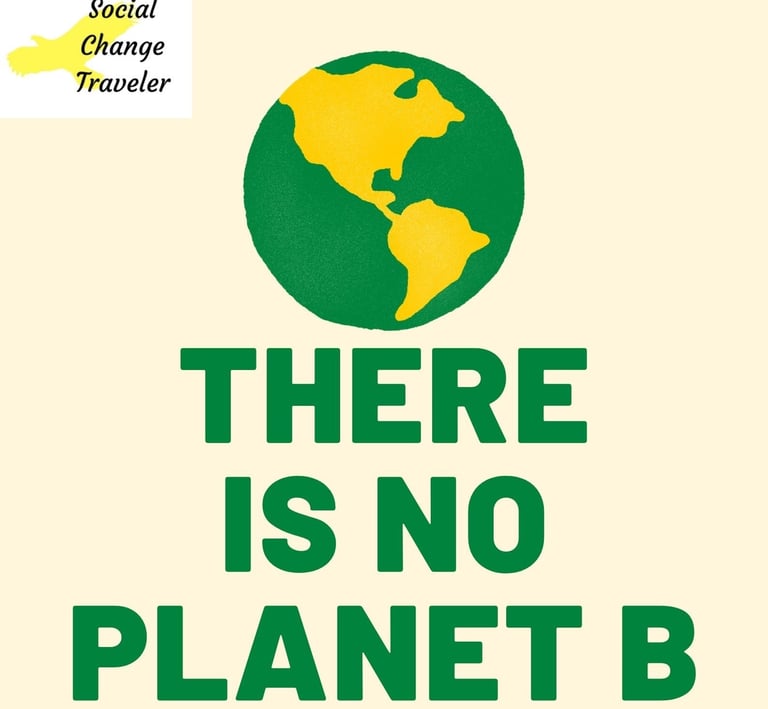Climate Crisis - 2024: A Call for Action from Rural India
"Explore the escalating climate crisis from the perspective of a small Indian village facing water scarcity, erratic monsoons, and rising heat. Discover how global warming impacts rural lives and what we can do to fight back."
ENVIRONMENTAL ISSUESTRAVEL TIPS & GUIDES
SCT
11/11/20242 min read


The Escalating Climate Emergency
Climate change has evolved into a full-blown climate crisis. You may have felt its effects this past year, facing unusual weather, worsening heat, or sudden floods. The signs are undeniable, and action can no longer be delayed. While nature possesses remarkable resilience, its systems can only heal if we make meaningful changes.
The Monsoon and Glacial Retreat: Alarming Patterns
The Indian monsoon, vital for drinking water and sustaining agriculture, is becoming erratic across the country. Meanwhile, the Himalayan glaciers—the origins of the Indus, Ganga, and Yamuna rivers—are melting at unprecedented rates. As sea levels rise faster, millions living near India's coastlines face potential displacement. Globally, extreme heat waves are affecting vast land areas, disrupting daily life and agriculture.
Living Through the Crisis: Delhi as an Example
If you've lived in Delhi for more than a decade, you’ve likely felt the city grow hotter, more humid, and suffer from worsening water shortages. These aren’t isolated occurrences but part of a larger global trend that’s affecting many regions across the world.
Why Is This Happening?
Mega-cities like Delhi and Mumbai consume vast amounts of energy, particularly among wealthier residents, who rely on air conditioning, malls, cars, flights, and large buildings. Industrial and transportation activities burn fossil fuels—coal, gas, and oil—adding over 53 billion tons of CO₂ and other greenhouse gases to the atmosphere each year. This relentless pursuit of economic growth drives inequality and environmental degradation. These gases trap heat, warming the planet at an alarming rate of five Hiroshima bombs per second. Globally, temperatures have risen by 1.1°C, and in India, by 0.8°C since the 19th century. The Indian Ocean, too, is warming, which severely impacts marine ecosystems.
Who Is Affected, and How Can We Help?
Everyone feels the impact, but vulnerable communities suffer the most. We need collective solutions and urgent action. If you have ideas, please write to us with suggestions on what actions we, as individuals and as a society, can take to mitigate this crisis. Your ideas may be shared on our platform.
Email: sct@bthgroup.in
I'm writing this from a small village of about 500 people. Here, we live without the comforts of regular electricity, water pumps, and other conveniences, making life challenging. Ironically, we have a telecom tower looming over us, a symbol of modern progress amidst the struggle for basics. Yet, as urgent as these issues are, they pale in comparison to a larger threat—the climate crisis.
Why Is This Happening?
"Who Is Affected, and How Can We Help
BTH GROUP
Your gateway to incredible Indian tourism experiences.
ENQUIRY
Travel & read
info@bthgroup.in
Whats app : +91 9871512964
bthgroup© 2024. All rights reserved.
Values
Email; SCT@BTHGROUP.IN
For Business:
